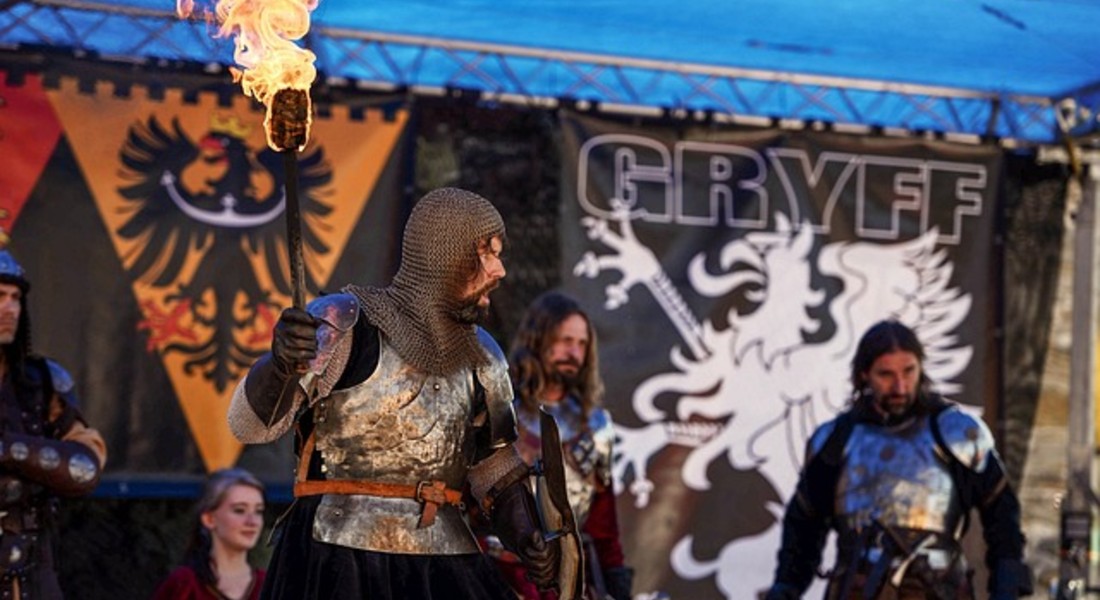The Knights Hospitaller, formally known as the Order of St. John of Jerusalem, Rhodes, and Malta, is one of the most fascinating and enduring military and religious orders in history. With origins rooted in the Crusades, they evolved from a charitable organization into a formidable military force. Among the many historians who have studied the order, Helen Nicholson stands out as a leading scholar in the field. Her extensive research and publications have provided invaluable insights into the order’s history, structure, and legacy. This blog post explores the origins, military engagements, societal contributions, and historical scholarship surrounding the Knights Hospitaller, with a particular focus on Helen Nicholson’s work.
Origins and Foundation
The origins of the Knights Hospitaller trace back to the 11th century when a group of monks established a hospital in Jerusalem to care for sick and injured pilgrims. This charitable mission soon expanded, and in 1113, Pope Paschal II officially recognized the institution as a religious order under the Rule of St. Augustine. Over time, the Hospitallers took on a military role, much like their counterparts, the Knights Templar, to protect Christian pilgrims traveling to the Holy Land.
Unlike purely military orders, the Hospitallers maintained their dual mission of both caring for the sick and engaging in military defense. This combination made them unique among medieval knightly orders, allowing them to persist long after the fall of the Crusader states in the Levant.
Military Engagements and Territorial Shifts
The Hospitallers played a significant role in defending Christian territories during the Crusades. Their fortress strongholds, including the famous Krak des Chevaliers in Syria, were pivotal in resisting Muslim advances. However, after the fall of Acre in 1291, the last major Christian stronghold in the Holy Land, the order was forced to relocate.
In 1310, they established a new base on the island of Rhodes, which they fortified extensively. From here, they continued their military campaigns against Muslim forces, particularly the expanding Ottoman Empire. Their rule on Rhodes lasted until 1522 when they were expelled by Sultan Suleiman the Magnificent after a prolonged siege.
Following their departure from Rhodes, the Knights were granted the island of Malta by Emperor Charles V in 1530. It was here that they achieved one of their most famous victories—the defense of Malta in 1565 against an overwhelming Ottoman force. This victory cemented their reputation as formidable warriors and secured their position in the Mediterranean for centuries.
The Order’s Role in Society and Medicine
Beyond warfare, the Hospitallers made significant contributions to medieval society, particularly in healthcare and medical advancements. Their hospitals set high standards for cleanliness and patient care, serving as some of the best medical institutions of their time. The order’s commitment to charity and healing remained integral to their identity, even as they took on greater military responsibilities.
As the political landscape of Europe shifted, the Hospitallers adapted, eventually transforming into the Sovereign Military Order of Malta, which continues to provide humanitarian aid and medical services worldwide.
Helen Nicholson’s Contributions to Hospitaller Studies
Helen Nicholson is one of the foremost historians specializing in the Knights Hospitaller. A professor of medieval history, Nicholson has authored numerous books and articles that provide deep insights into the order’s structure, functions, and historical significance.
One of her most influential works, The Knights Hospitaller, offers a comprehensive overview of the order’s history from its foundation through its various transformations. Her meticulous research sheds light on the order’s internal governance, military strategies, and social impact. Additionally, her work examines the relationships between the Hospitallers and other medieval institutions, helping to place them within the broader context of European and Middle Eastern history.
Nicholson’s scholarship is particularly valuable because it moves beyond traditional narratives that focus solely on the order’s military exploits. She also explores their economic structures, medical contributions, and the role of women in the order, offering a more holistic understanding of their legacy.
The Enduring Legacy of the Knights Hospitaller
The Knights Hospitaller have left an indelible mark on history. From their early days as caretakers of pilgrims to their transformation into a powerful military order, their influence is still felt today. Thanks to the work of historians like Helen Nicholson, we have a clearer picture of their true impact—one that extends beyond battlefield victories to include medicine, governance, and humanitarian efforts.
Today, the Sovereign Military Order of Malta continues the Hospitaller tradition, operating as a global humanitarian organization. Their ongoing work in disaster relief, medical aid, and refugee assistance echoes the principles that guided the original order nearly a thousand years ago.
Conclusion
The Knights Hospitaller represent a unique blend of chivalry, charity, and military prowess. Through the dedicated research of historians like Helen Nicholson, we can appreciate the complexities of their history and the multifaceted roles they played in medieval society. Whether through their legendary battles, medical advancements, or enduring charitable mission, their legacy continues to captivate scholars and history enthusiasts alike.



